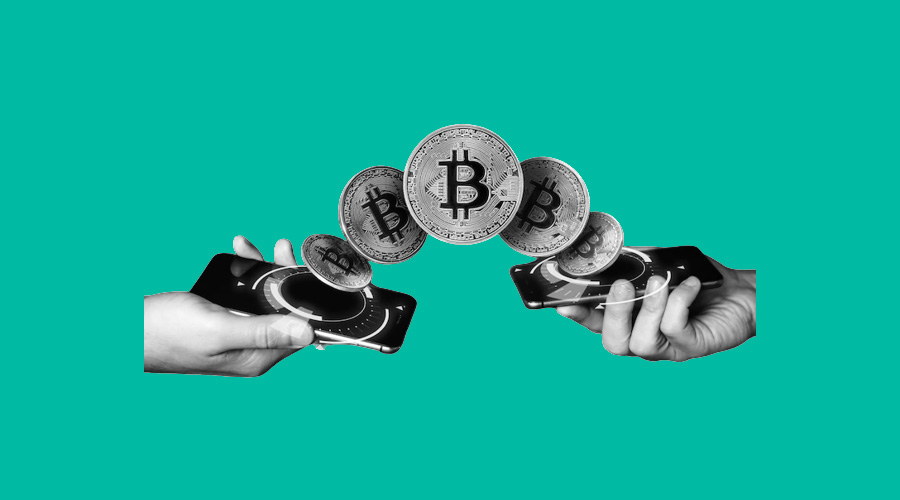 Understanding how cryptocurrencies and exchanges operate
Understanding how cryptocurrencies and exchanges operate
The place where buyers and sellers may trade cryptocurrencies is called an exchange. Only some regular investing organizations currently provide cryptocurrency trading, so if you want to do it, you’ll need to do it through a crypto exchange. The three primary categories of cryptocurrency exchanges are centralized, decentralized, and hybrid. However, alternative means of buying and selling cryptocurrency exist, such as investment applications and 1:1 P2P trading sites.
You may buy and trade cryptocurrencies like Bitcoin (BTC), Ether (ETH), Litecoin (LTC), polkadot (DOT), dogecoin (DOGE), and others when you create an account with a crypto exchange. Depending on the exchange, you may swap one type of cryptocurrency for another or buy crypto using fiat money, such as the US dollar. A service is more likely to provide a variety of cryptocurrencies, the bigger and more reputable it is. Still, before creating an account, you might want to ensure the cryptocurrency you wish to use is accessible. You can purchase cryptocurrency on a crypto exchange with regular fiat money or exchange one cryptocurrency for another. You can cash out your cryptocurrency, convert it back into fiat money, or keep it in your account for trading in the future. The services offered might differ based on the exchange or app you use. For instance, using some services, you may not be able to transfer your cryptocurrency to your cryptocurrency wallet. Cryptocurrency exchanges are open 24/7, as opposed to traditional exchanges that have regular trading hours.
You must fund your exchange account, sometimes referred to as a wallet, before you can start trading. Remember that a wallet offered by a platform or app is usually kept on that platform. For increased protection, creating your cryptocurrency wallet is often advised (more on cryptocurrency wallets below). Next, you may see the trade values for various cryptocurrencies. Because cryptocurrencies are decentralized, there may be modest variations among exchanges. However, it’s important to note that the exchange does not establish the prices; instead, the market determines them, and most exchanges represent current pricing.
The order is subsequently put into the order book together with other buy and sell orders. You may then submit a buy order for Bitcoin, ether, etc. Exchanges and online brokers typically charge fees for their services, depending on the sort of platform you’re on (an exchange, an investing app, or a cash app). Contrary to regular markets, where many fees have decreased recently, cryptocurrency trading is often more expensive. Although many can be significantly lower: 0.5% or less per deal, it’s common to find fees as high as 5% per trade or more.
Since the exchange is the simplest location to purchase cryptocurrency, this is where most individuals first encounter it. The main distinction between a crypto exchange and a wallet is that most wallets are solely helpful for transmitting, storing, and receiving cryptocurrency.
One advantage of using a cryptocurrency exchange is that:
- Simple and practical for beginning users
- Enables the buying and trading of cryptocurrency in a primarily controlled setting.
- Some exchanges provide customers with tax forms, making it simpler to compute cryptocurrency taxes.
The following are some drawbacks of utilizing a crypto exchange:
- Exposable to theft, fraud, or hacking
- Users cannot access funds or conduct transactions if the exchange is unavailable.
- The custodial exchange wallet users do not possess their private keys.
What Distinguishes a Crypto Exchange from a Crypto Wallet?
Consider a wallet as the location where you “store” your cryptocurrency, whereas a crypto exchange is where you trade your cryptocurrency. A wallet’s functionality could be more straightforward. Since both are used for trading cryptocurrency, investors and traders typically utilize crypto wallets and exchanges. However, it’s crucial to remember that their primary objectives are different: An exchange is made to, well, trade them, but a crypto wallet is created and intended to retain cryptographic assets. Consumers should be aware that although some cryptocurrency exchanges offer their wallets for consumers to utilize, these custodial wallets are not necessarily secure. Investors should know the saying, “not your keys, not your coins.” It implies that the exchange effectively controls your assets if you store them in the native or custodial wallet of a cryptocurrency exchange. Transferring them to a hot or cold wallet under your control is the only way to ensure they are secure and in your hands.




